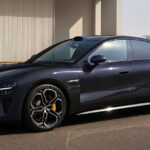Do you judge somebody based on the brand of phone they use? Or the manufacturer of their TV, fridge, washing machine, or dishwasher?
Personally, I don’t think so. I couldn’t even tell you the brand of my fridge, despite seeing it more often than my own family. I remember how I acquired it though – the old one broke, and I found a used one advertised by a friendly elderly couple nearby.
While I may not pay attention to brand names on appliances, I do find myself making assumptions about people based on the car they drive. It used to be a common practice – associating certain personality traits with specific car brands. A boy racer would drive a BMW, while a slow driver might opt for a Skoda.
However, times have changed. A Hyundai manager in the 1990s once expressed his desire for the brand to be as respected as Mercedes. And now, we see comparisons between Hyundai and Porsche.
Recently, a friend of mine had a Lotus, Range Rover, and Kia on his company lease shortlist. It’s fascinating to see how brands have evolved. Lotus, known for sports cars, now competes with Kia in the electric SUV market.
With the influx of new players like Tesla, Rivian, BYD, MG, and various Chinese car manufacturers, the automotive landscape is constantly changing. As a marketer, it’s challenging to predict why consumers choose certain brands today compared to a decade ago.
Ultimately, our choices in brands may not define us as much as they once did. The lines between traditional and emerging brands are blurring, making it harder to make assumptions based on brand alone.




